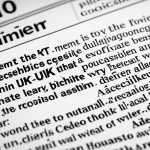Understanding the UK Environment for Pets
The UK environment offers a unique backdrop for pet lifestyle, characterised by its distinct climate and geography. In the UK, the weather is predominantly temperate, with mild summers and cool, wet winters, which can impact pet activity levels and behavior. Consequently, pets may require acclimatization to adjust to these seasonal shifts, ensuring their comfort and health throughout the year.
In terms of geography, pets in the UK often encounter a variety of landscapes, from urban settings to rural countryside and coastal regions. These environments influence how pets interact with local wildlife, such as foxes, squirrels, and an array of bird species that are common across the country. Pet owners should be aware of how these interactions can affect their pet’s behavior and training needs.
This might interest you : How Can You Create a Cozy Pet-Friendly Space at Home?
Regional variations also play a role in shaping the pet lifestyle in the UK. For instance, urban areas might demand that pets are more adept at socializing and following commands due to higher population densities and stricter regulations about public spaces. On the other hand, rural regions may offer more space for pets to roam, yet require attention to the interaction with farm animals or protected wildlife.
Therefore, understanding these environmental factors is crucial in helping pets acclimatize and thrive. Whether it’s considering local wildlife for interaction or adjusting to the varying regional climates, a thorough understanding of these elements contributes significantly to a harmonious pet lifestyle in the UK.
Also read : How Can You Ensure a Smooth Transition for Your New Pet in the UK?
Legal Requirements for Pet Ownership in the UK
Navigating the UK regulations for pet ownership involves understanding several key areas, including microchipping, vaccinations, and travel protocols. Each aspect ensures that pets are well-protected and integrated seamlessly into the community.
Microchipping and Identification
In the UK, microchipping is a mandatory requirement for dogs. As of April 2016, all dogs must be microchipped by the age of eight weeks, ensuring they can be easily identified if they’re lost. This law aims to improve animal welfare by reuniting lost pets with their owners more swiftly. It’s a simple procedure, involving a tiny chip inserted under the pet’s skin, carrying unique identification.
Vaccination Requirements
To maintain a healthy public and pet population, certain vaccinations are required for pets. Vaccines protect against common diseases like rabies, parvovirus, and distemper. These vaccinations are essential before pets can access public spaces, such as parks and communal areas. Regular booster shots are also recommended to keep pets protected, highlighting the importance of a pet’s health regimen.
Pet Travel Regulations
Pet travel within and outside the UK is governed by strict regulations to prevent the spread of diseases. Key requirements include having a valid pet passport, an updated microchip, and proof of vaccinations, particularly against rabies. The Pet Travel Scheme simplifies the process, allowing pets to enter or return to the UK without quarantine, provided they meet these criteria. Understanding these rules ensures smooth transitions and enjoyable travel experiences with pets.
Cultural Norms Affecting Pet Training
Understanding the cultural norms surrounding pet training in the UK can greatly enhance the pet etiquette and social interactions of your furry friends. In the UK, pets are warmly welcomed in many public spaces, which means socialization is key. Dogs, for instance, are often expected to be able to navigate busy streets or cafes calmly, interacting politely with both humans and other dogs.
Common training techniques focus on positive reinforcement, emphasizing rewards over corrections. This approach is prevalent across the country, ensuring your pet doesn’t just follow commands but also feels comfortable and confident in various environments. Socialization practices are also essential, with puppy classes being a popular way to instill good behaviour early on.
Pet owners often gather at local parks or through formal socialization groups, creating a shared community that supports advanced training and fosters better pet behaviours. Understanding and embracing these cultural norms helps create a harmonious pet lifestyle that can thrive amidst the unique backdrop of the UK. Keeping abreast of these practices not only makes for a more enjoyable pet ownership experience but also ensures compliance with societal expectations.
Training Techniques for UK Life
Understanding dog training techniques suitable for the UK is essential for fostering well-behaved pets. Training not only ensures compliance with societal expectations but also enriches the pet-owner relationship.
Basic Commands and Social Skills
Key commands like “sit”, “stay”, and “come” are fundamental for obedience and should be introduced early. These commands provide the foundation for managing pets in busy urban environments. Teaching social skills through interaction with other dogs at parks helps build confidence and improves behavior in public.
Outdoor Training Sessions
The UK’s diverse landscapes offer ideal settings for outdoor training. Opt for local parks and open spaces for sessions, which enhance behavior modification through exposure to various stimuli. Regular outdoor training promotes physical health and mental stimulation, crucial for energetic breeds needing an outlet for exercise.
Addressing Behavioral Issues
When dealing with behavioral challenges, consistency and patience are key. Many trainers recommend addressing issues like anxiety or aggression with a blend of positive reinforcement and structured activities. Tailored solutions, such as behavior modification plans, can aid in correcting undesired habits and fostering a harmonious pet lifestyle.
Acclimatization Methods for Pets
Helping pets adjust to the UK environment involves understanding various acclimatization strategies to ensure their comfort and well-being. The UK’s climate and distinct environments can pose a challenge for pets unused to such settings.
Begin with gradual exposure techniques; introduce new sights, sounds, and smells incrementally to avoid overwhelming your pet. Gradually increasing their exposure helps them become familiar with the environment, reducing anxiety and fostering comfort.
Establishing a consistent routine is another crucial method. Regular feeding times, walks, and play sessions help pets acclimatize by providing them with predictability and security. A structured routine assures pets that their needs will be consistently met, buffering the impact of new or stressful situations.
Moreover, consider sensory enrichment to facilitate adaptation. Use toys, textures, and scents that engage your pet’s senses and encourage curiosity rather than anxiety. For example, using toys that mimic local wildlife sounds or providing familiar textures can help your pet feel more at ease in their new environment.
Incorporate these acclimatization techniques to ease your pet’s transition into a new setting. Prioritize their comfort through thoughtful exposure, routine establishment, and sensory enrichment, ensuring a smooth adjustment to UK life.
Recommended Pet-Friendly Areas and Resources
Unleashing the beauty of pet-friendly spaces and tapping into community resources can enhance the pet ownership experience in the UK. Here are some top picks and helpful community facilities for pet enthusiasts.
Local Parks and Nature Areas
Exploring the UK’s rich tapestry of local parks provides pets with ample space to roam and enjoy nature’s diversity. Whether it’s Hyde Park in London with its vast open gardens or the rolling landscapes of Dartmoor in Devon, these areas offer the perfect setting for pets to exercise and explore. Regular visits not only benefit pet health but also encourage social interactions.
Pet-Friendly Cafés and Shops
The UK’s bustling urban areas boast numerous pet-friendly cafés and shops where pets are welcomed. Establishments like the Dog & Bone Café in Birmingham cater specifically to pet owners, offering treats for both humans and their furry companions. These spots provide a unique opportunity for pets to socialize with other animals in a comfortable indoor setting.
Community Organizations and Support Groups
Joining community organizations dedicated to pets can provide invaluable support and foster a sense of community among pet owners. Local rescue centres often host events and training workshops, while organizations like The Blue Cross offer advice and resources. Engaging with these groups can offer guidance on training, health, and even participation in pet-friendly events.
Embracing these pet-friendly opportunities not only supports a dynamic pet lifestyle in the UK but also enriches the human-animal bond through shared activities and experiences.
Success Stories and Expert Tips
Uncovering success stories and incorporating expert advice can greatly enhance your pet training journey. By exploring what has worked for others, you can gain practical insights and improve your own pet’s behavior.
Insights from Experts
Experts often recommend a combination of consistency and positive reinforcement when it comes to pet training. For instance, using consistent commands can help pets understand expectations, while rewarding them with treats or praise strengthens desired behaviors.
Common Mistakes to Avoid
A frequent mistake is neglecting socialization, which can lead to behavioral issues in unfamiliar environments. Engaging your pet regularly in various social settings helps build confidence and adaptability. Another pitfall is inconsistency in commands, which can confuse pets about what is expected of them.
Successful Case Studies
Numerous case studies highlight the efficacy of gradual acclimatization methods. For example, one owner’s methodical routine of introducing their pet to public spaces resulted in improved comfort and behavior over time. By methodically adhering to positive reinforcement techniques, many pet owners have transformed their pets’ confidence and adaptability in UK settings.






